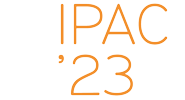Speaker
Description
Superconducting radio frequency (SRF) cavities performances strongly depend on the surface preparation. Conventional protocol of SRF surface preparation includes electropolishing (EP) as the main treatment achieving low roughness, clean surface, both for Nb and Cu substrates. Harsh and corrosive solutions are typically used: concentrated HF and H2SO4 acids for Nb, and H3PO4 with Butanol mixtures for Cu. The application of PEP can be not only used for conventional elliptical resonators, but also for normal conducting cavities and other components of accelerators where polishing is normally applied, such as couplers. PEP is an evolution of EP with a list of advantages. Only diluted salt solutions are used, unlike EP. PEP can in principle substitute, or eliminate, intermediate steps, like mechanical and/or (electro) chemical polishing, thanks to superior removing rate in the field (up to 3.5 μm/min of Nb, and 10 μm/min of Cu). A ≤100 nm roughness achieved both for Nb and Cu substrates. A higher smoothing/polishing effect respect to an EP was obtained. PEP application onto the SRF substrates is shown. Defects evaluation of the substrate has been analysed.
Funding Agency
Work supported by the INFN CSNV experiment SAMARA. This project has received funding from the European Union¿s Horizon 2020 Research and Innovation programme under Grant Agreement No 101004730.
| I have read and accept the Privacy Policy Statement | Yes |
|---|

